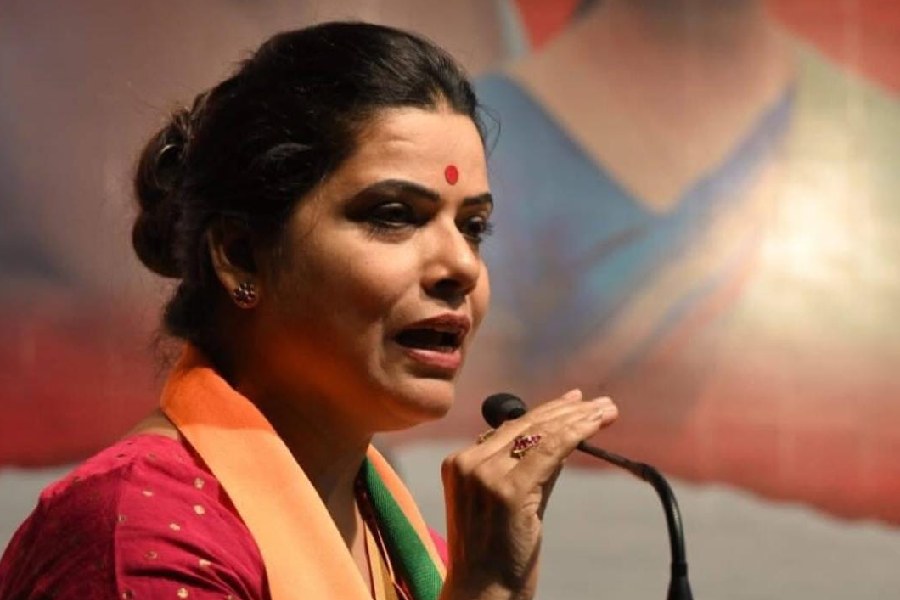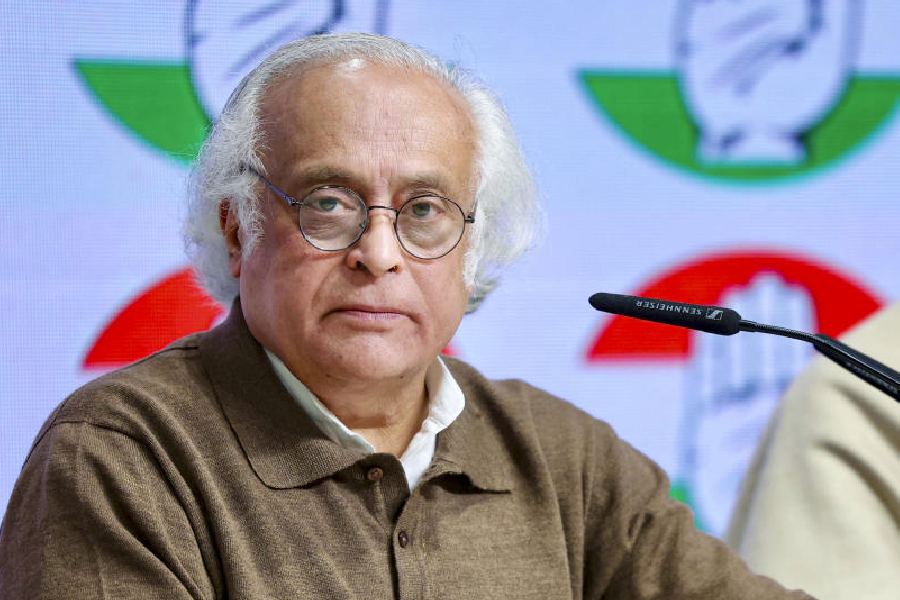
In Satyajit Ray's 1963 film, Mahanagar, Arati starts going out to work when her husband's earnings can no longer meet the needs of her ageing in-laws, his sister and their own son. But Ray treats her with greater kindness than does Narendranath Mitra in his 1949 short story, "Abataranika", on which the film is based. The film does record the bitter disapproval of Arati's father-in-law, for whom the place of a wife and mother is in the home, and who feels that if Arati works, it is a loss of dignity for their family and a mark of shame for his son, Subrata. His sensitivities are hurt. Things worsen as the once demure daughter-in-law gains in confidence outside the home, helps in the family finances, provides little extras of pleasure for everyone, and begins to enjoy a sense of selfhood. Then even Subrata, who had encouraged Arati to work, wants her to resign - he has arranged for a part-time on top of his full-time job - and the atmosphere turns frosty when she refuses. When she does resign, however, it is to protest against the insulting and unjust treatment of a colleague, an Anglo-Indian girl. On the same day, the bank that Subrata works in fails, and he, too, is left jobless.
In the film, the double job loss draws husband and wife close in a tender moment of hard-won, intimate equality, and they seem to be stepping into a life of different values, in which both will be looking for jobs in the great city. But Mitra does not allow his Arati any such redemption. The story opens with Subrata's mother's accusations about Arati's lateness and neglect of her little girl who has fever, and this sour note resonates in the remarks of the father-in-law and in Subrata's anger. Bitterness remains the reigning mood in the household, which is larger than in the film, giving Arati two toddlers and Subrata two little brothers in addition to his sister.
In the story, Subrata almost forces Arati to go to work in spite of his parents' resistance, and it is he, again, who is furious when she refuses to resign when he insists she should. He cannot stand her desire to earn, which he despises as greed, as a kind of fall from the 'purity' of the home. His sensitivities reject this Arati. A study by RTI International and the Indian Institute of Management, Bangalore in 2005-06 showed that in families with strained finances, women who earned were 80 per cent more likely to face domestic violence, especially if the husband earned less. The story subtly suggests these dynamics. It ends with the jobless Subrata's sarcastic comment on the pointlessness of Arati's resignation for the sake of a colleague, who, he thinks, would never appreciate her sacrifice. "You too?" says Arati, as her eyes fill with tears.
The violence in Mitra's story is emotional, 'naturalized' through a family structure that uses 'sentiments' about woman's compliance, family honour and male pride as both garb and armour. Arati is expected to get a job when ordered and leave it when ordered, return from work at a time considered decent for a married woman, besides being a dutiful wife, mother and daughter-in-law. Her role in improving the family's finances must never be mentioned, but she should be blamed for her greed when she holds on to her job, and then be blamed for her stupid sentiment in letting it go because her husband is suddenly jobless. In everyday life, family sensitivities do not always stop at mental cruelty. In September, 2017, for example, a 13-year-old girl in Telangana was strangled by her father and set on fire by both parents for talking to a boy. She is probably the youngest honour killing victim so far in India, but this expression of outraged sensitivity is far from uncommon. A man killed his daughter in Kerala on the eve of her wedding just last week because she was about to marry a boy below her caste.
Sensitivities about caste, sub-caste, faith, clan, community and whatever else are not just the proud possessions of families, they overrun the nation. Indians bristle with them, nowadays growing a new bristle every week. It is not just women who hurt these, but some men too, when, for example, they can be accused of eating beef, or when they dare be rational, critical or freely imaginative in speech, books or pictures. But women are most hurtful. On March 15 in Alwar, Rajasthan, Usha Devi, a 33-year-old mother of a boy and a girl, was killed on her way to the plastic factory where she worked, allegedly by her husband's uncle. The wife of a daily wage labourer, she was the chief breadwinner of her family and was trying to ensure education for her children. Her uncle-in-law hacked her to death with a sword he later claimed to be a 'family heirloom' because 'Rajput pride' is hurt if women worked. The murder occurred next to NH-8 in open space but no one saw a thing. Perhaps there can be no crime, no cruelty, when it is a matter of sensitivity.
Usha Devi is one more woman to disappear from the rapidly depleting numbers of women in India's workforce. According to the Centre for Monitoring Indian Economy, 2.4 million women dropped out of work in the first four months of 2017, while the number of women who quit jobs between 2004-05 and 2010-11 is 19.6 million. Although more girls are now being educated than boys, when jobs are scarce women lose out first. That is bad enough, but that alone cannot be the reason that 67 per cent of graduate women do not work in rural India and 68.3 per cent in the cities, as indicated by a 2015 United Nations Development Programme report. A 2017 World Bank report shows that in 2013, India had the lowest rate of women's employment after Pakistan within South Asia. For about 20 years before 2013, women's percentage in the workforce dropped from 34.8 per cent to 27 per cent. Survey after survey has recorded how dominant family attitudes - 'why should my wife work when I earn enough?' to 'we can allow our daughter-in-law to work if she can get home in time to cook and serve the family' - combined with the fear of social disapproval - 'she neglects her children' - and the menace of sexual predators outside keep women at home.
Many women are asked to earn only when families are in need, and stop as soon as things are better, as Arati was expected to do. An over-sensitive nation, especially one that is so protective of its women that it can develop no forceful resistance against those who rape and kill them, is a foolish nation. A 2015 report by the McKinsey Global Institute calculated that if Indian women participated in paid work equally with men, India would have increased its GDP by 60 per cent by 2025.
Usha's intolerable end is a symptom - an extreme one - of what a woman must fight with just to be able to work. But even while deploring her tragedy, the discourse around it focuses on the neatness of her house and her devotion to every detail of housework as an instance of exemplary virtue in a working woman. Obviously, that a woman was killed just because she worked would not be tragic enough for a people with sensitivities.










